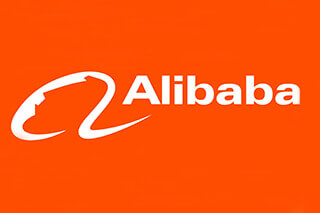Yesterday renewed my faith in common sense prevailing.
I have long been a very keen advocate for the changes retail has to make to embrace the vast opportunities that new technologies and new attitudes present. Not only in a theoretical sense but practically too, ever since I co-authored, with my old friend Andy Morrey, the first truly successful Multichannel Strategy in the UK that radically changed Argos almost 20 years ago.
Those changes are becoming more and more urgent as the new technologies are developing at an ever-quickening pace, leaving behind those slow to adopt them, and slow to realise the changing priorities they are creating for the customer journey.
Those unaware that the old adage ‘supply and demand’ has gone through a complete pole reversal and become ‘demand and supply’, with the customer in control will not be around much longer.
However, those soothsayers who are foreseeing the death of the store coming out of the above scenario are wrong.
According to the Office for National Statistics, internet sales as a % of total retail sales in the UK in March 2018 was 16.8%. It threatened 20% last November when internet sales are traditionally at their height. Yes it will grow, but the high street, malls and corner shops will be with us for a while yet. That said, their character and services will need to change in order for them to survive.
So it was a breath of fresh air to hear Alibaba (one of the world’s top retail players, famed for facilitating a $25 billion spend in 24 hours on Singles Day (11.11) last year) describe themselves during a presentation we attended at their offices yesterday, as ‘not an ecommerce business’.
The presentation was called ‘New Retail – From Concept to Reality’, and was a reprise from their successful appearance at Retail Week Live in March. Their mission, they said, was ‘To make it easy to do business anywhere’.
Yes, they grew as an ecommerce business and have leveraged the amazing opportunities that China presents, by building their own very comprehensive ecosystem, were there wasn’t one before. The numbers behind the business are extraordinary. They process 325,000 orders a second. So that’s around 100K orders since I started writing this sentence. They have 560 million active consumers and around 1 billion individual IDs recognised across their ecosystem.
And they don’t only sell lots of low priced items. Recently their systems sold 350 Alfa Romeo cars in 3.3 seconds during a promotion. They also sold 100 Maserati’s in 18 seconds. Mind blowing.
But they are committed to bricks and mortar too.
Their Hema Supermarket, being developed in partnership with an ex-employee of Alibaba, is growing fast and has many features that should be integrated here in the UK. Everything the customer can do is powered by mobiles. Their revenue per sq metre is 5 times that of a normal supermarket. Each store is a mini-fulfilment centre for the local population with an average delivery time of 30 minutes. They are planning 600 stores by the end of 2019.
And they are helping to bring the ‘Mom and Pop’ corner stores in China that traditionally support local communities into the 21st Century, by helping replace the old hand written back of house stock taking and ordering systems with digital alternatives, all supported by the Alibaba ecosystem.
Amazon gets a lot of good press about its growth, innovation and as an inspiration for change. From what I saw yesterday Alibaba with its data driven ecosystem and more generic outlook, may well be a better possible partner for some, particularly those who want to break into the Chinese market, but also those who realise they need better data driven systems that will support them in this new demand and supply, customer in charge, era.
Bryan



